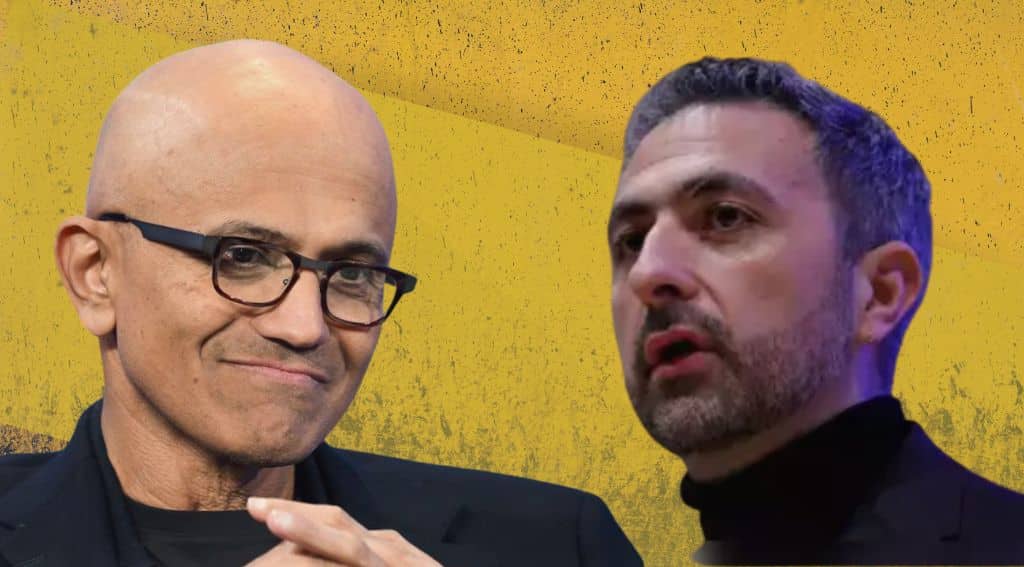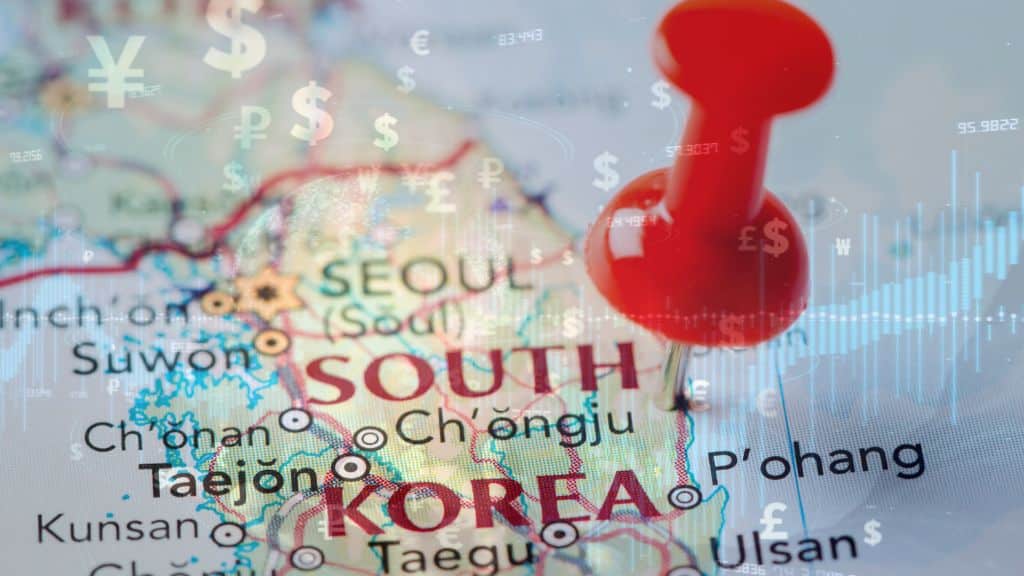Microsoft’s AI talent acquisition race

Tech giants are vying for the top talent to secure their position in the rapidly evolving AI economy. Microsoft, under the leadership of CEO Satya Nadella, has been making strategic moves to outpace rivals and establish dominance in the AI sector.
Novel approach to talent acquisition
Microsoft’s recent recruitment of Mustafa Suleyman (photo above on right), and Karén Simonyan, two co-founders of the once-prominent AI startup Inflection, along with many of its employees, exemplifies a new tactic in talent acquisition. This method, dubbed the ‘Nadella variation,’ involves hiring key personnel without acquiring the entire company. This allows Microsoft to integrate top AI experts into its fold while leaving the startup intact.
Satya Nadella, CEO of Microsoft, (photo above on left), clarified the new moves within the company in a recent communication to employees. He emphasized that Microsoft is in the second year of the AI platform shift, which requires bold innovation to shape the future. Nadella announced the formation of a new organization, Microsoft AI, led by Mustafa Suleyman as EVP and CEO, and Karén Simonyan as Chief Scientist. Suleyman, co-founder of DeepMind and Inflection, is recognized for his visionary approach and product development skills. Simonyan, also from Inflection, is celebrated for his contributions to AI research, including AlphaZero.
The duo, along with several accomplished members from Inflection, will focus on advancing Copilot and other consumer AI products and research at Microsoft. This move signifies a commitment to building world-class AI products that resonate with end-users, combining science, engineering, product, and design.
Nadella also mentioned the ongoing strategic partnership with OpenAI, indicating that Microsoft will continue to support OpenAI’s foundation model roadmap and innovate atop their models. Mikhail Parakhin’s team, responsible for Copilot, Bing, and Edge, as well as Misha Bilenko’s GenAI team, will now report to Suleyman. This reorganization aims to bolster innovation and adapt to the evolving AI-driven consumer product landscape.
Kevin Scott remains CTO and EVP of AI, overseeing the company’s overall AI strategy, system architecture, partnerships, and cross-company coordination5. Rajesh Jha continues as EVP of Experiences & Devices, focusing on integrating Copilot into Microsoft. These changes reflect Microsoft’s dedication to leading the AI revolution and ensuring its benefits reach everyone safely and responsibly.
The addition of Suleyman and Simonyan to Microsoft AI signifies a significant step for the company. They will oversee consumer-facing AI services, including the Copilot chatbot, Bing search engine, and Edge browser. This move is part of Microsoft’s broader strategy to collaborate with ambitious AI startups and lead the market, as evidenced by its substantial investment in OpenAI and partnership with France’s Mistral.
Microsoft’s market dominance
Microsoft’s aggressive hiring and investment strategies have propelled it to become the world’s most valuable public company, surpassing the combined market value of all companies listed on London’s FTSE 100 index. The company’s focus on AI has not only boosted its market value but also positioned it ahead of Google, its main competitor.
The global contest for AI talent is fierce, with the biggest tech companies scrambling to secure the best researchers. The United States remains the dominant player, attracting more talent than it loses. This talent war underscores the importance of human capital and cloud computing infrastructure in training state-of-the-art foundation models like OpenAI’s GPT-4 and Google’s Gemini.
Microsoft’s innovative approach to talent acquisition and its commitment to advancing AI technology have solidified its leadership in the industry. As the AI economy continues to grow, the battle for top talent will intensify, shaping the future of technology and innovation.






